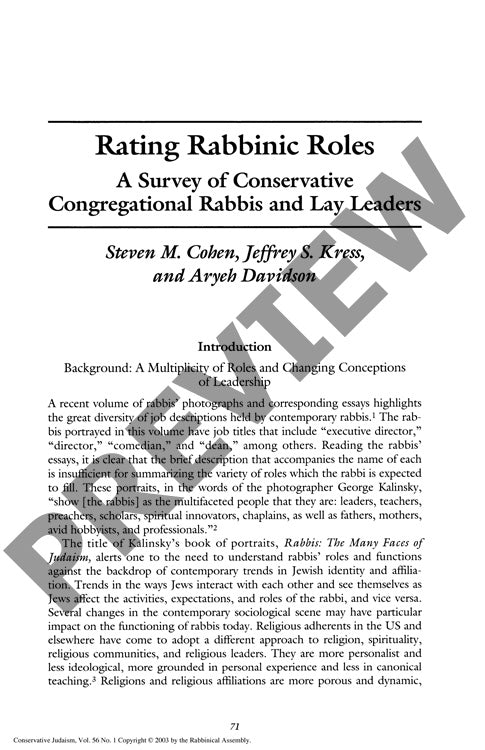Rating Rabbinic Roles a Survey of Conser
Couldn't load pickup availability
Conservative rabbis and their congregants largely agree on the essential roles of religious leadership, yet diverge significantly in their perceptions of how rabbis actually spend their time. A comprehensive 2001 survey of 320 congregational rabbis and 560 lay leaders revealed both groups prioritize teaching, pastoral care, and religious modeling while undervaluing crucial managerial functions. Through structured surveys distributed to Rabbinical Assembly members and United Synagogue of Conservative Judaism leaders, yielding response rates of 37% and 52% respectively, the research identified eight key dimensions of rabbinic functioning. These dimensions clustered into two categories: direct congregant services (pastor, worship leader, model of religiosity, educator) and indirect functions (visionary, manager, professional, ambassador). While rabbis report dedicating substantial time to teaching and administration, lay leaders consistently underestimate these commitments, instead overestimating rabbis' involvement in visible activities like text study and worship services. Factor analysis demonstrates that both groups rank Jewish educator, pastor, model of religiosity, spiritual guide, and halakhic authority as the most important roles, while assigning minimal importance to institutional management tasks. This shared undervaluation of managerial responsibilities presents a significant challenge, as modern congregational leadership demands sophisticated institutional management skills - competencies that traditional rabbinic constructs have yet to fully embrace.

More Information
-
Physical Description
-
Publication Information
Published 2003
ISBN
-
Publication Credits
Steven Cohen

